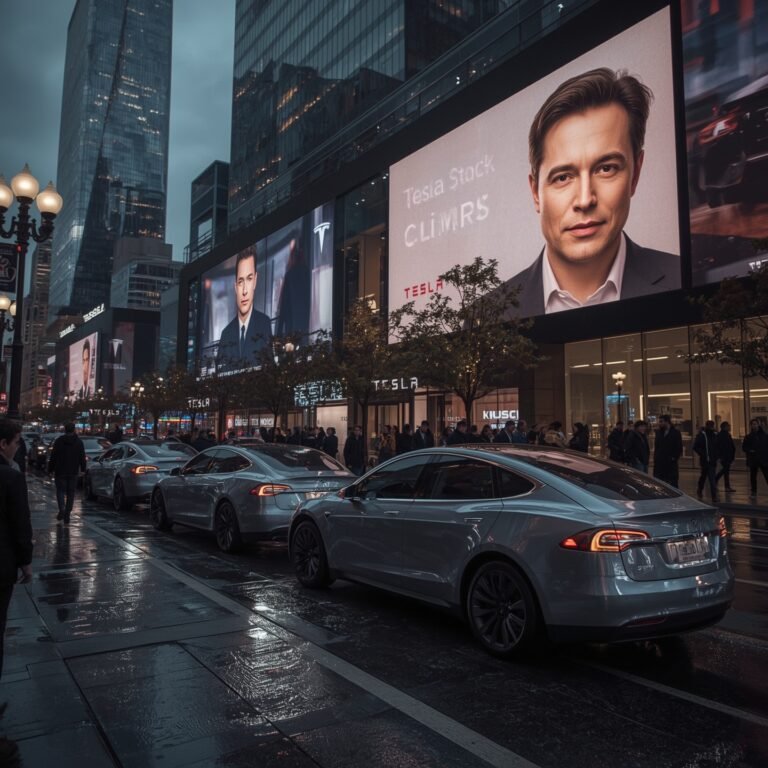Launch Delayed for Safety: Tesla postponed its Austin robotaxi debut from June 12 to June 22, citing a “super paranoid” focus on safety amid NHTSA scrutiny of its driverless-taxi plans.
Stock Up on Political Rebound: Despite the delay, TESLA shares rose as CEO Elon Musk’s outreach to President Trump is seen as bolstering hopes for favorable autonomous vehicle regulations.
Pilot Rolls Out Small: The initial program will deploy roughly 10 geofenced Model Y vehicles, expanding toward 1,000 in Austin and other U.S. cities once fully tested.
Tesla Inc. will now begin its inaugural robo-taxi service in Austin, Texas, on June 22 instead of the previously announced June 12 date, CEO Elon Musk said this week. The company attributed the ten-day postponement to an abundance of caution around safety protocols, a stance echoed by the U.S. Department of Transportation’s National Highway Traffic Safety Administration, which has formally requested details on how Tesla’s self-driving taxis will handle adverse conditions like low visibility and severe weather.
Investors responded positively to the announcement. Tesla’s stock (TSLA) climbed modestly on June 11, trading above levels seen during Musk’s recent public clash with former President Donald Trump. Analysts characterize Musk’s outreach to Trump, aimed at smoothing rifts over the past week, as an “apology tour” that could secure regulatory goodwill for autonomous vehicle frameworks. “Trump needs Musk to stay close to the Republican party, and Musk needs Trump for many reasons, including a green light on a federal framework for autonomous vehicles,” Wedbush’s Dan Ives wrote in a research note.
When it goes live, the pilot program will employ about ten unmodified Tesla Model Y cars equipped with cameras and sensors, restricted to geofenced zones in Austin’s urban core. Musk has said the fleet will eventually scale to 1,000 vehicles and expand to cities such as Los Angeles and San Francisco within months. The custom-built Cybercab, featuring a purpose-designed robotaxi chassis, remains under development; this initial rollout leverages off-the-line production models to accelerate deployment.
Beyond the political and technical dimensions, Tesla faces the broader challenge of restoring market enthusiasm for electric vehicles, as its 2024 revenue climbed just 1% year-over-year and EPS fell to $2.04. Yet some strategists view robotaxis as a potential new revenue stream and licensing opportunity. Brian Mulberry of Zacks Investment Management noted, “There’s a lot riding on the event…the future growth of this line of business could be pretty substantial for the company.” Still, safety remains the wild card after past incidents involving Tesla’s driver-assist software, prompting both federal inquiries and planned protests by Austin residents on the original launch date.
As Tesla refines its autonomous taxi service, the coming weeks will test whether Musk’s caution and his renewed political alliances can translate into a smooth rollout and sustainable investor confidence.

